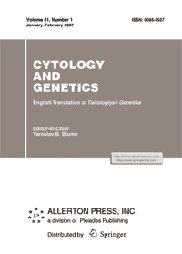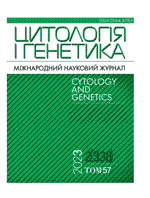SUMMARY. Mutations in the MECP2 gene are known to cause Rett syndrome (RTT) – a neurodevelopmental disorder, one of the most common causes of intellectual disability in females, with an incidence of 1 in 10,000–15,000. We have investigated exons 3 and 4 of the MECP2 gene, that coding MBD and TRD domains of the MeCP2 protein, in 21 RTT patients from Ukraine by PCR-DGGE analysis followed by Sanger sequencing of PCR fragments with abnormal migration profiles. In 13 of 21 (61,9 %) patients 7 different mutations were identified one nonsense mutation – c. NC_000023.11:g.154031326G>A (MECP2:c.502C>T) and 4 missense mutation NC_000023.11:g.154031409G>T (MECP2:c.419C>T), NC_000023.11:g.154031355G>A (MECP2:c.473C>T), NC_000023.11:g.154031354A>C (MECP2:c.472A>C), NC_000023.11:g.154031431G>A (MECP2:c.397C>T) located in exon 4, a rare RTT-causing splice site mutation NC_000023.10:g.153296903T>G (MECP2:c.378-2A>C) in intron 3 and deletion NC_000023.10:g.153296079_153296122del44 in exon 4. The novel mutation MECP2:c.472A>C identified in our study in patients with classic RTT phenotype leds to T158P substitution. It is one more confirmation of crucial role that 158 codon in MECP2 protein function.
Keywords:

